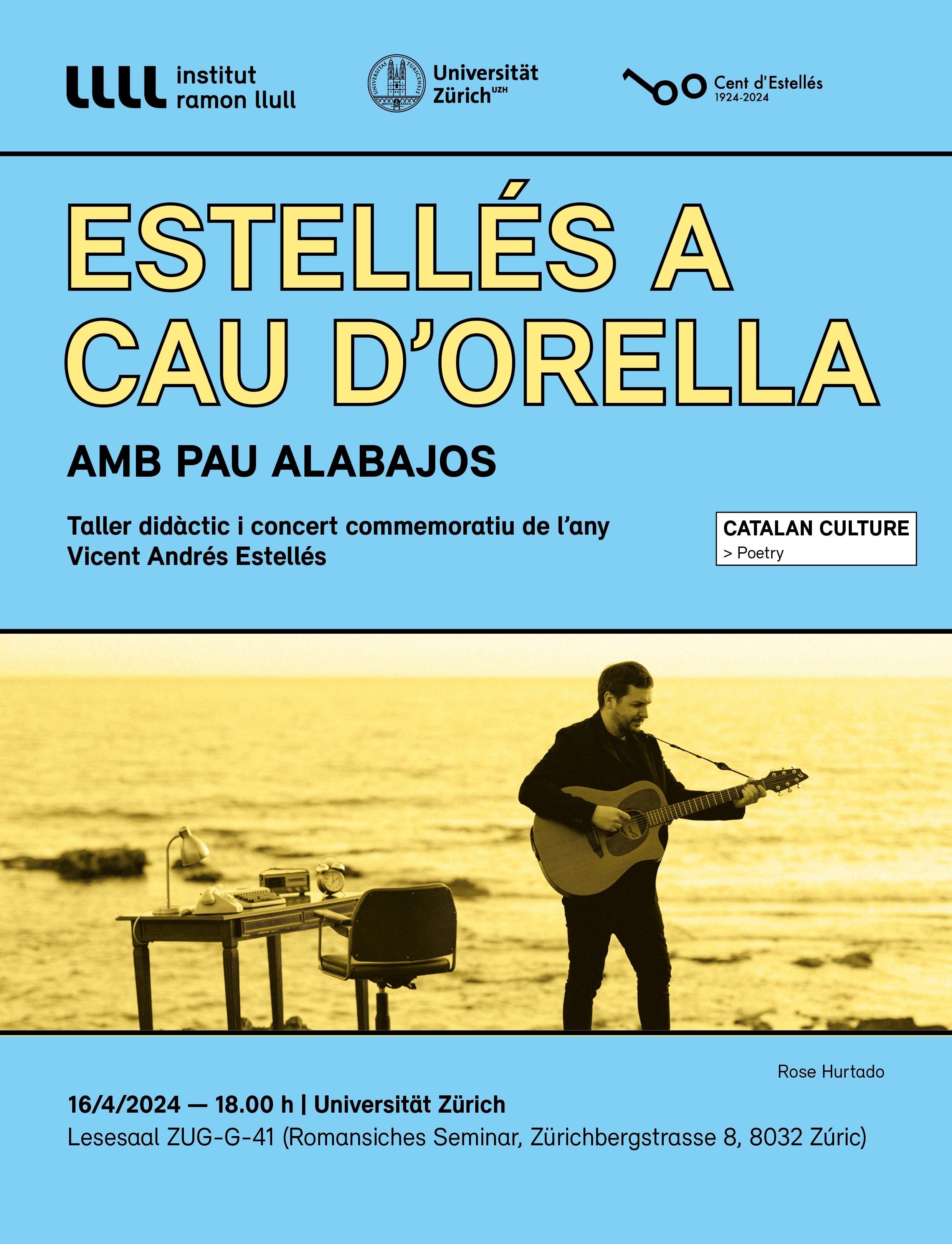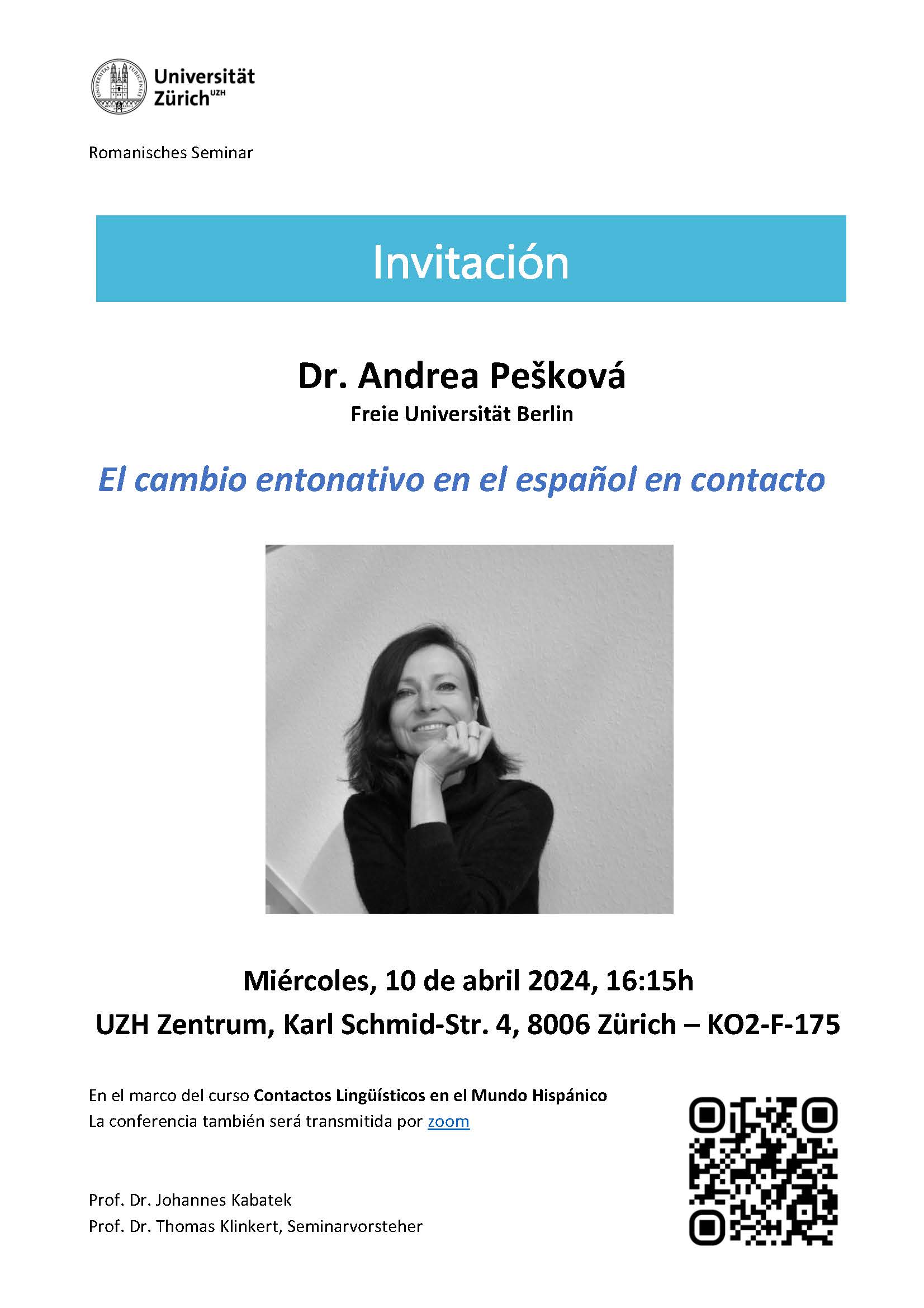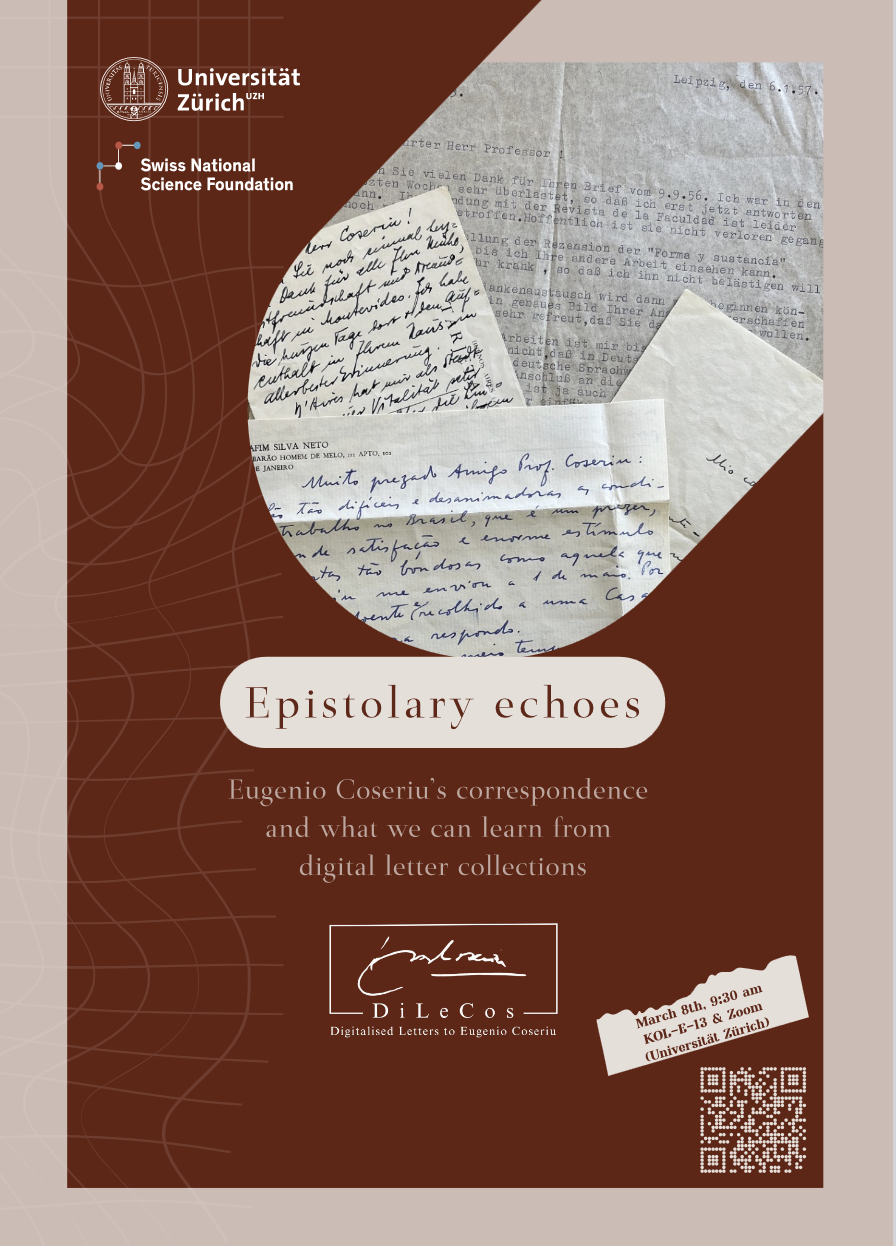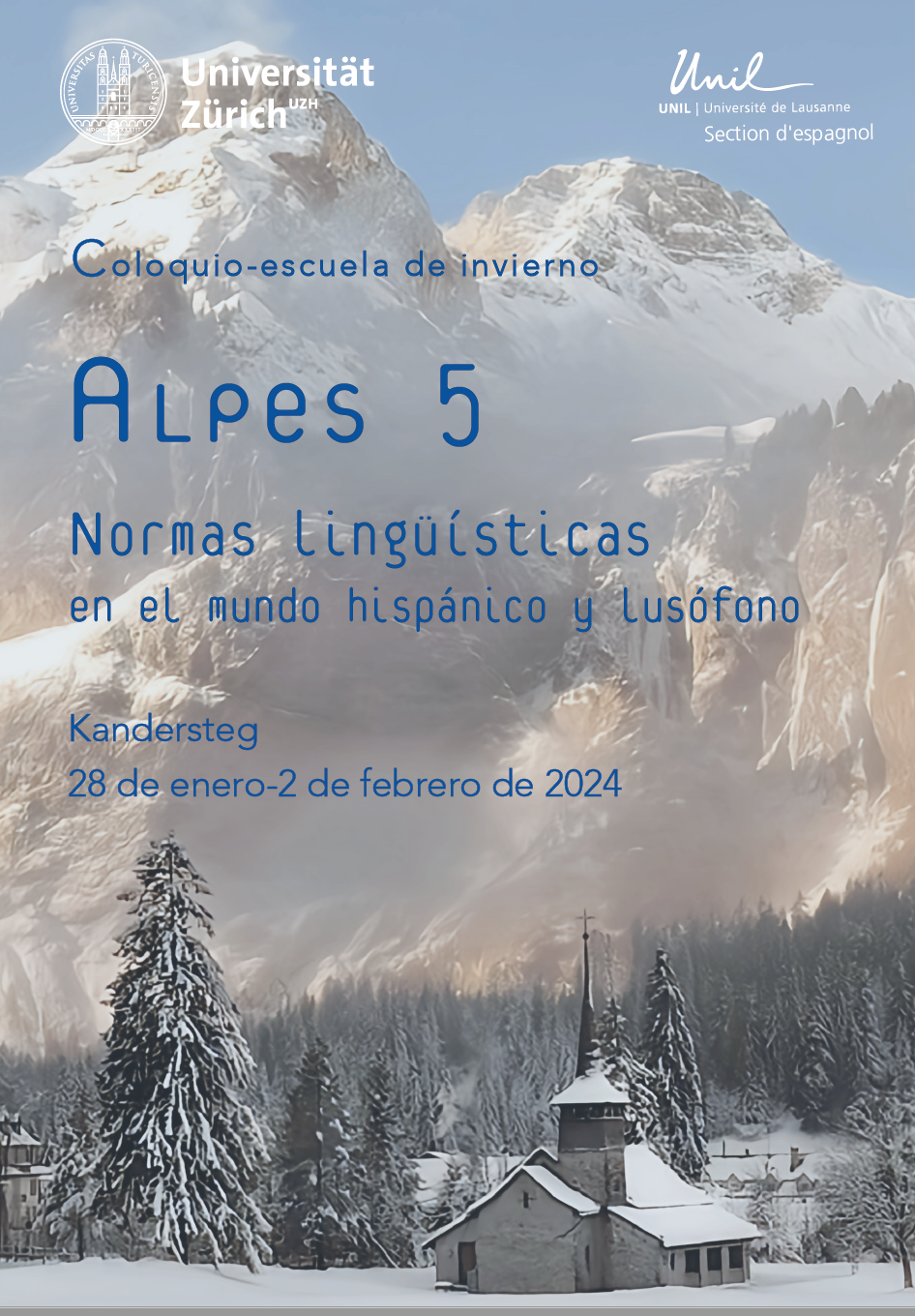Navigation auf uzh.ch
Navigation auf uzh.ch

Romanisches Seminar
Zürichbergstrasse 8
CH - 8032 Zürich
+41 (0)44 634 36 10
Büro ZUG G 64
El XIII Congreso Internacional de Historia de la Lengua Española, auspiciado por la Asociación de Historia de la Lengua Española (AHLE), tendrá lugar en Suiza, en la Universidad de Zúrich, del 1 al 4 de julio de 2024. Llamamos a participar activamente en el congreso a los miembros de la Asociación de Historia de la Lengua Española (AHLE), así como a todos investigadores interesados en los estudios diacrónicos del español.
.jpg)

ZOOM PDF (PDF, 189 KB)
https://uzh.zoom.us/j/97661701204?pwd=TGljSWd5bVd1SDd2bHhJQ0pnSnIzUT09
Meeting-ID: 976 6170 1204 – Kenncode: 252939

Symposium: Zurich, 8.03.2024
As the culmination of the project “Beyond Structuralism” – Letters to Eugenio Coseriu and the history of linguistics in the 20th century (DiLeCos), we are pleased to invite you to a discussion session focusing on the possibilities of linguistic research using letters, archives… This event will be a significant gathering featuring a series of discussions led by renowned linguistic specialists from around the globe (Austria, Belgium, Germany, Japan, Switzerland).
Online platform DiLeCos (Digital Letters to Eugenio Coseriu)
